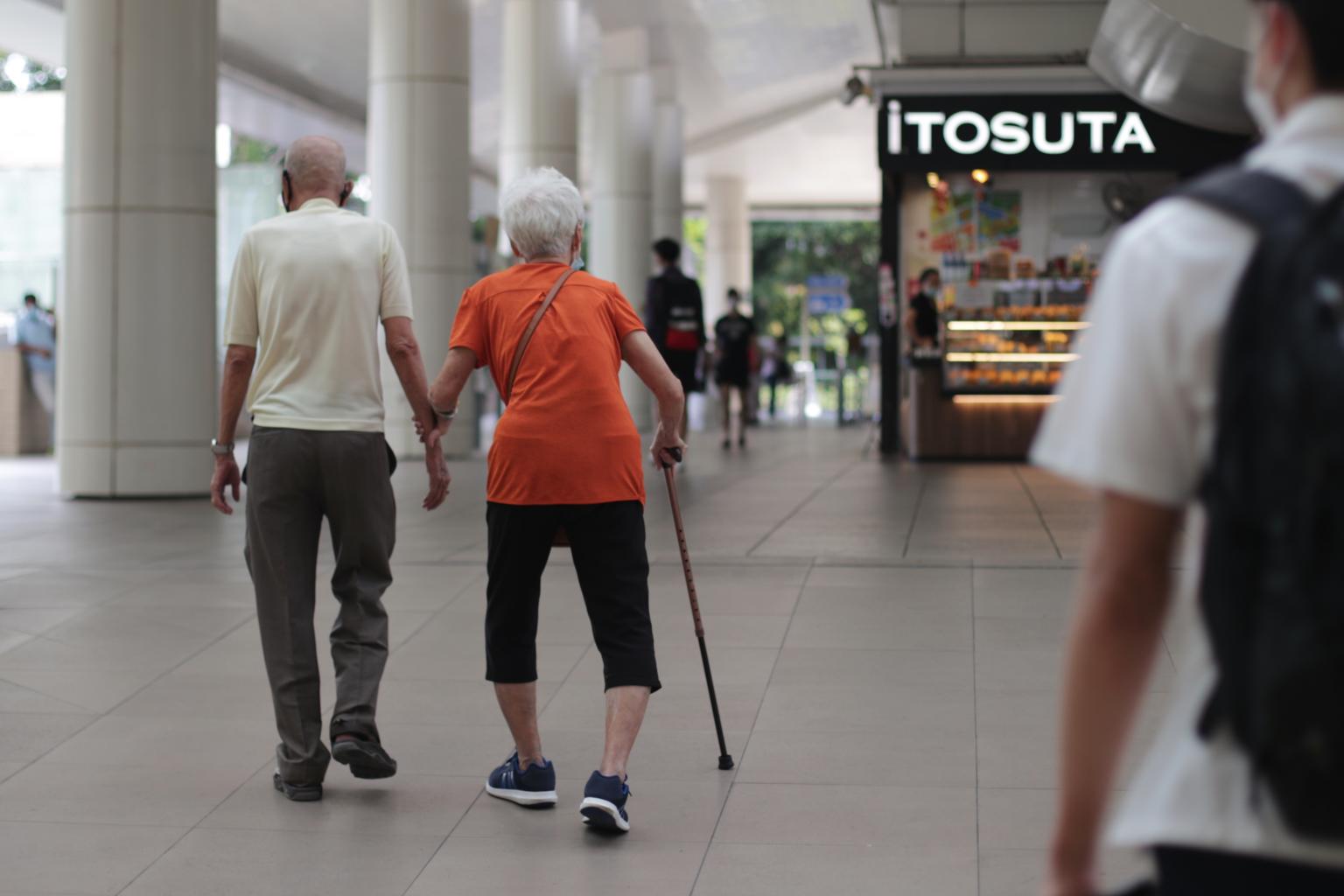$1.2 million fund to kick-start research in regenerative medicine for osteoarthritis patients
Sign up now: Get ST's newsletters delivered to your inbox

The joint disorder affects many elderly people and Singapore has an increasingly ageing population.
PHOTO: ST FILE
Jong Ching Yee, Wallace Woon
Follow topic:
SINGAPORE - Efforts to come up with new treatments for patients suffering from osteoarthritis have been boosted by a $1.2 million donation from local biotechnology company StemiGen Therapeutics to the Lee Kong Chian School of Medicine (LKCMedicine).
The Government will match the donation in a contribution to the LKCMedicine Endowment Fund.
The joint disorder affects many elderly people and Singapore has an increasingly ageing population.
Speaking at the signing ceremony for the StemiGen-LKCMedicine Regenerative Medicine Research Fund on Wednesday (April 20), National Healthcare Group deputy chief executive of education and research Benjamin Seet said the fund will support research in stem cell technology and regenerative medicine that focuses on developing therapy methods for patients suffering from osteoarthritis of the knee.
"Despite (osteoarthritis) being a highly prevalent disease that affects up to 80 per cent of people aged 65 years and older, as well as a leading cause of physical disability in the elderly, there is currently no effective treatment to stop progression of osteoarthritis," he said.
Current methods to treat the disease comprise symptomatic pain relief, steroid injections to reduce inflammation, and knee surgery, said Professor Seet.
"With Singapore's rapidly ageing population, osteoarthritis has also become a major cause of morbidity and disability here," said Prof Seet.
For example, osteoarthritis patients make up around 90 per cent of the 1,800 knee replacement operations performed every year at the Singapore General Hospital (SGH).
According to Dr Lee Kong Hwee, a consultant at the SGH department of orthopaedic surgery, the joint disorder affects around 10 per cent of the population - around 500,000 people. And while many are elderly individuals, there is a growing prevalence of the disease among younger patients.
StemiGen chief executive James Hsieh said the fund will also help support the training of qualified regenerative medicine scientists and practitioners.
He added: "Stem cell therapy has tremendous potential to revolutionise healthcare in Singapore. Over the past two decades, an ageing population has brought about challenges, including chronic conditions and other diseases that current treatments are unable to cure.
"(The) creation of the StemiGen-LKCMedicine Regenerative Medicine Research Fund will be a first step to develop the know-how and technologies to manufacture and administer stem cell therapies safely, effectively and affordably."
Prof Seet identified two projects that will be beneficiaries of the fund.
One project aims to develop a 3D-printed, stem cell-loaded bone graft, while the other is seeking to develop medicine that could help osteoarthritis patients regenerate the cartilage around their joints.
Dean of LKCMedicine, Professor Joseph Sung, said Nanyang Technological University (NTU) - of which LKCMedicine is part of - will be able to bring together the diverse mix of scientists required for highly interdisciplinary research in fields like regenerative medicine.
"Leveraging the university's strengths in engineering and biomedical research, and LKCMedicine's focus on translational research, the gift will go towards developing innovative tools and therapies that will be beneficial for patients," he added.
The donation is the most recent of monetary injections that LKCMedicine has received for stem cell and regenerative medicine research, said an NTU spokesman, adding that grants of $10 million had been received in each of the past two years.
Prof Sung said he is looking forward to the close collaboration between LKCMedicine and its clinical and industrial partners.
He added: "With our partners, we have taken confident steps towards finding disruptive discoveries to help our ageing population, leading to better lives."
Correction note: An earlier version of the story said a $2.4 million fund will kick-start research in regenerative medicine for osteoarthritis patients. This is inaccurate. Only the $1.2 million donation from StemiGen Therapeutics will be going towards the research. We are sorry for the error.

